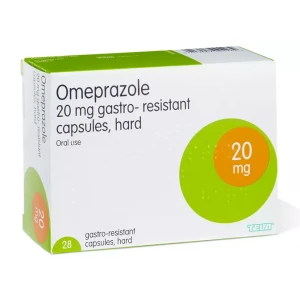How Long Does Omeprazole Take to Work?
Omeprazole is a widely prescribed medication for treating various stomach and oesophagus conditions, such as indigestion, stomach ulcers, and heartburn. It belongs to the class of Proton Pump Inhibitors (PPIs) and is often recommended alongside non-steroidal anti-inflammatory drugs (NSAIDs) to protect the stomach lining. This article delves into how omeprazole works and the time it takes to alleviate symptoms.
How Long Does Omeprazole Take to Work?
We understand that there can be nothing worse than waiting for medication to kick in when you’re suffering or in pain – so what can you expect when taking omeprazole?
You should start feeling the benefits of omeprazole within 2-3 days, and most people find that their symptoms have significantly subsided by 4 weeks. However, if you feel that you are still struggling, speak to your doctor, who may be able to recommend an alternative dosage or a completely different treatment.
It's essential to take Omeprazole regularly for it to be most effective. You should take Omeprazole at the same time every day. If you often forget when to take your medication, set a reminder on your phone or store your medicine in a place that will remind you to take it.
Omeprazole
- Decreases stomach acid
- A variety of doses
- Effective against heartburn symptoms
How to Take Omeprazole?
There are several ways to take omeprazole, depending on the condition it is being used to treat. If you are using over-the-counter omeprazole, here is what you need to know:
- Don't take over-the-counter omeprazole for longer than two weeks without first consulting your doctor.
- If you are taking 10mg of omeprazole, then it is typical to take just one a day in the morning.
- If you are finding that over-the-counter omeprazole is ineffective, speak to your doctor, who may prescribe a stronger dosage.
Your doctor will decide on the safest dosage of omeprazole for you. However, the following guidelines have been taken from the NHS:
- For the treatment of indigestion, a dose of 10mg-20mg per day is usually sufficient.
- For the treatment of heartburn and acid reflux, 20mg – 40mg is normally recommended.
- Further uses and doses can be found in the patient information leaf
Please note that this is a guideline published by the NHS and should not be interpreted as a recommendation. It is essential that you never alter your dosage without consulting your doctor first.
Always seek your doctor’s advice before changing your omeprazole dosage
If you feel your current dosage of omeprazole is not effective at relieving your symptoms, speak to your doctor. You should never increase or change any medication without first seeking medical advice.
In conclusion, omeprazole typically starts to show its effects within 2-3 days of beginning the medication. Most individuals experience significant relief from their symptoms by the 4-week mark. Consistency is key, so it's crucial to take omeprazole at the same time every day for optimal effectiveness. If your symptoms persist or worsen, consult your doctor for alternative treatment options or dosage adjustments.
Additional Resources
Authored & Reviewed By

Mohamed Imran Lakhi
MPharm - Lead PharmacistPublished on: 04/09/2019 Reviewed on: 05/06/2025
© 2013 - 2026 Al Muhsineen Limited. All Rights Reserved. Registered Pharmacy: 34 Halliwell Road, Bolton BL1 8RL. Registered Office: 254 First Floor, Shearbrow, Blackburn, England, BB1 8DS






